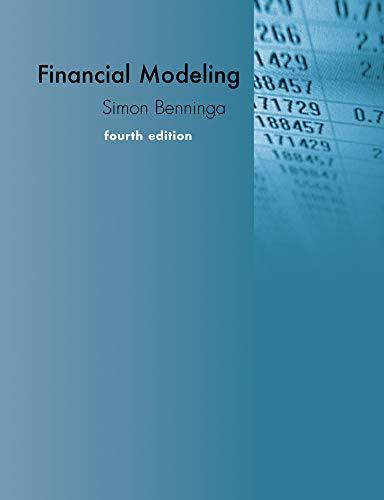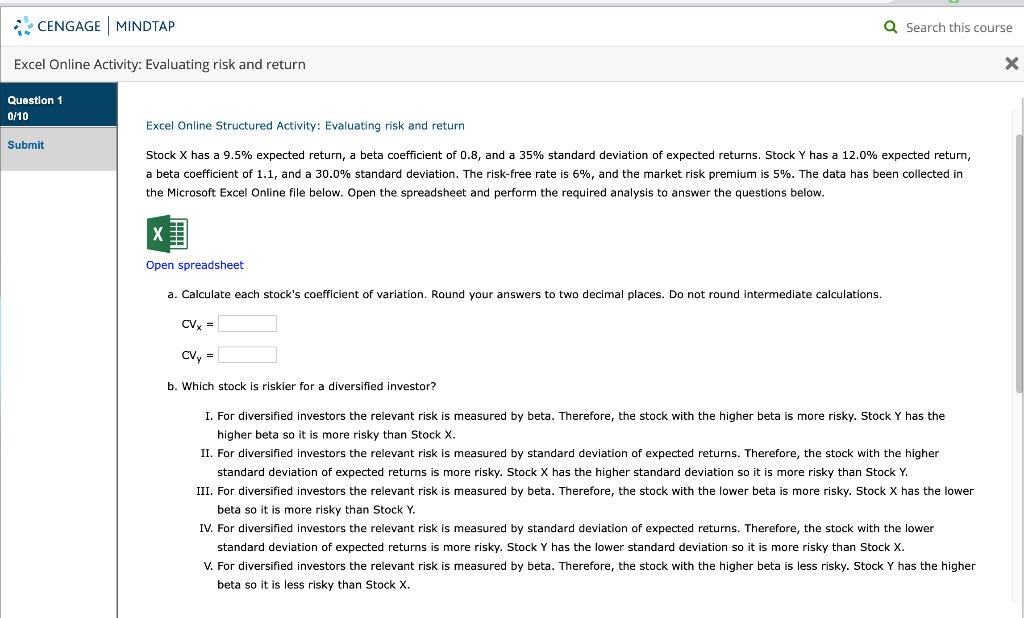
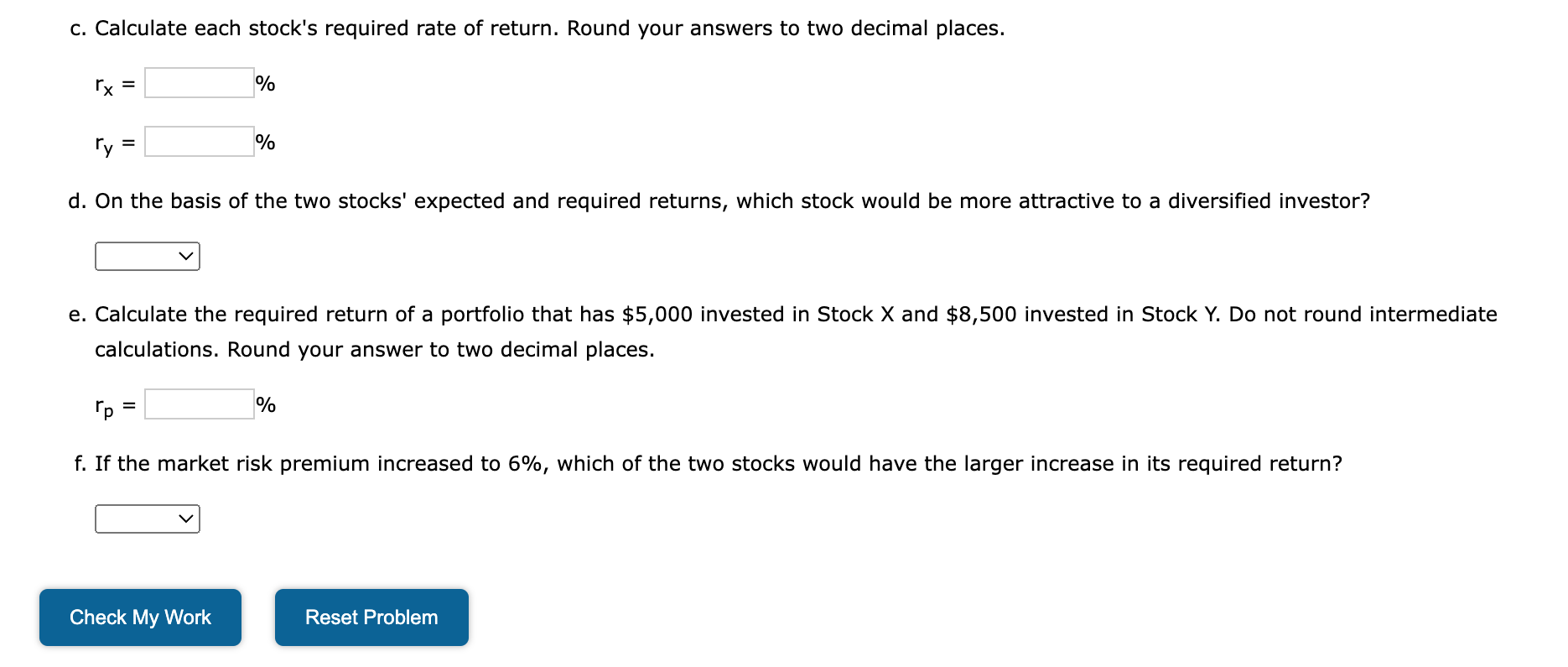
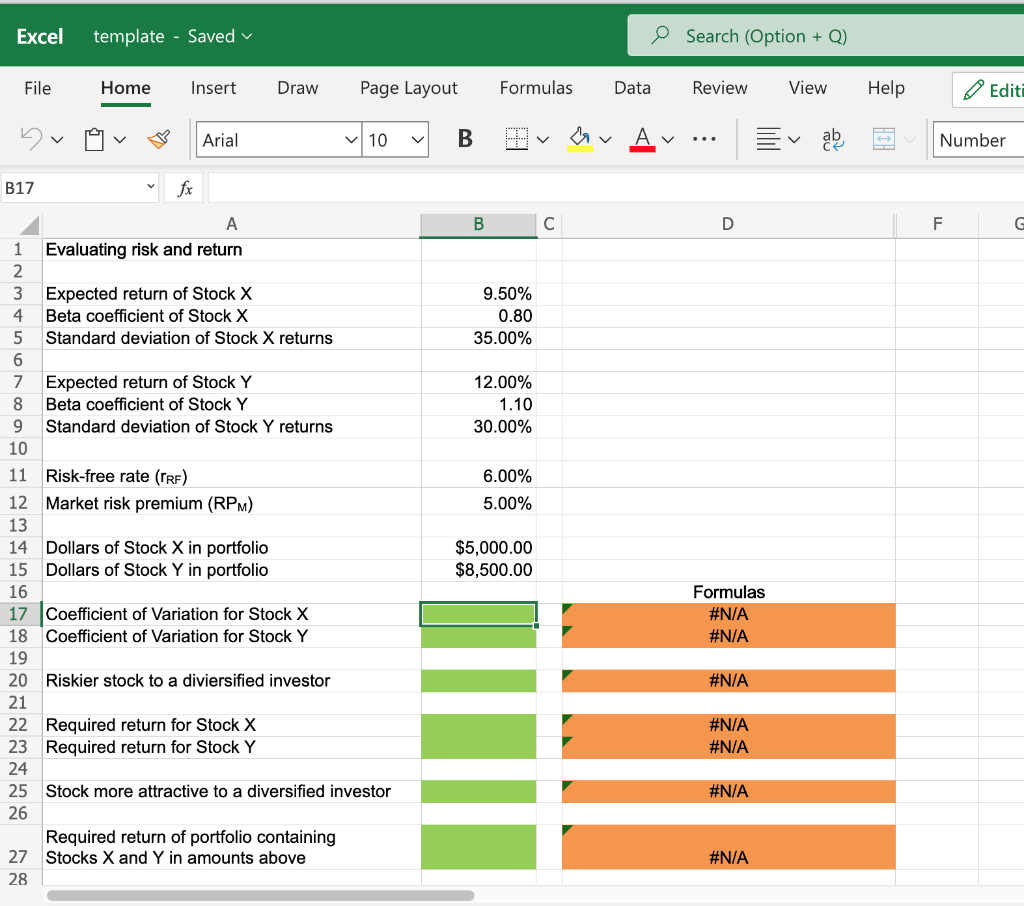
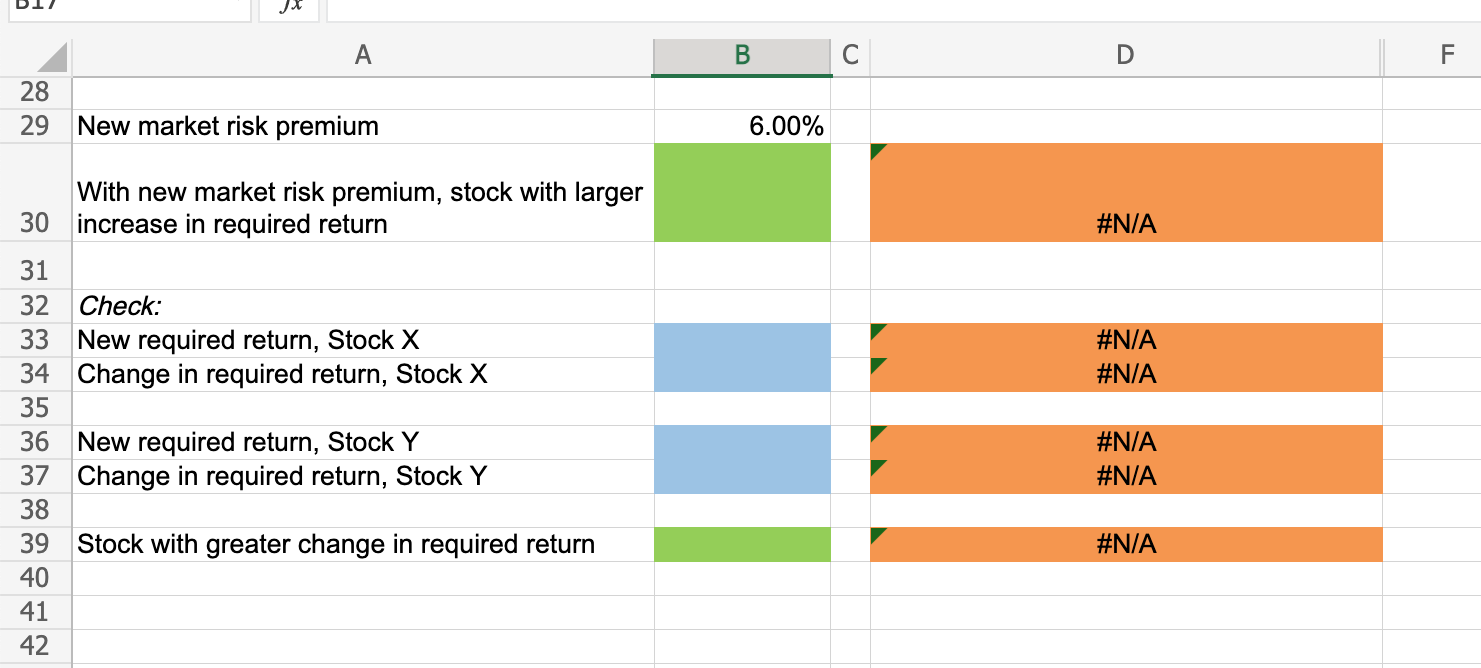
CENGAGE MINDTAP Q Search this course Excel Online Activity: Evaluating risk and return X Question 1 0/10 Excel Online Structured Activity: Evaluating risk and return Submit Stock X has a 9.5% expected return, a beta coefficient of 0.8, and a 35% standard deviation of expected returns. Stock Y has a 12.0% expected return, a beta coefficient of 1.1, and a 30.0% standard deviation. The risk-free rate is 6%, and the market risk premium is 5%. The data has been collected in the Microsoft Excel Online file below. Open the spreadsheet and perform the required analysis to answer the questions below. Open spreadsheet a. Calculate each stock's coefficient of variation. Round your answers to two decimal places. Do not round intermediate calculations. CVX = CV = b. Which stock is riskier for a diversified investor? I. For diversified investors the relevant risk is measured by beta. Therefore, the stock with the higher beta more risky. Stock Y has the higher beta so it is more risky than Stock X. II. For diversified investors the relevant risk is measured by standard deviation of expected returns. Therefore, the stock with the higher standard deviation of expected returns is more risky. Stock X has the higher standard deviation so it is more risky than Stock Y. III. For diversified investors the relevant risk is measured by beta. Therefore, the stock with the lower beta is more risky. Stock X has the lower beta so it is more risky than Stock Y. IV. For diversified investors the relevant risk is measured by standard deviation of expected returns. Therefore, the stock with the lower standard deviation of expected returns is more risky. Stock Y has the lower standard deviation so it is more risky than Stock X. V. For diversified investors the relevant risk is measured by beta. Therefore, the stock with the higher beta less risky. Stock Y has the higher beta so it is less risky than Stock X. c. Calculate each stock's required rate of return. Round your answers to two decimal places. x = % = ry % d. On the basis of the two stocks' expected and required returns, which stock would be more attractive to a diversified investor? e. Calculate the required return of a portfolio that has $5,000 invested in Stock X and $8,500 invested in Stock Y. Do not round intermediate calculations. Round your answer to two decimal places. = rp % f. If the market risk premium increased to 6%, which of the two stocks would have the larger increase in its required return? Check My Work Reset Problem Excel template - Saved Search (Option +Q) File Home Insert Draw Page Layout Formulas Data Review View Help Editi bi Arial 10 B v v Av ... ab Number B17 fx B D F G 9.50% 0.80 35.00% 12.00% 1.10 30.00% 6.00% 5.00% A 1 Evaluating risk and return 2 3 Expected return of Stock X 4 Beta coefficient of Stock X 5 Standard deviation of Stock X returns 6 7 Expected return of Stock Y 8 Beta coefficient of Stock Y 9 Standard deviation of Stock Y returns 10 11 Risk-free rate (TRF) 12 Market risk premium (RPM) 13 14 Dollars of Stock X in portfolio 15 Dollars of Stock Y in portfolio 16 17 Coefficient of Variation for Stock X 18 Coefficient of Variation for Stock Y 19 20 Riskier stock to a diviersified investor 21 22 Required return for Stock X 23 Required return for Stock Y 24 25 Stock more attractive to a diversified investor 26 Required return of portfolio containing 27 Stocks X and Y in amounts above 28 $5,000.00 $8,500.00 Formulas #N/A #N/A #N/A #N/A #N/A #N/A #N/A JX A B D F 28 29 New market risk premium 6.00% #N/A #N/A #N/A With new market risk premium, stock with larger 30 increase in required return 31 32 Check: 33 New required return, Stock X 34 Change in required return, Stock X 35 36 New required return, Stock Y 37 Change in required return, Stock Y 38 39 Stock with greater change in required return 40 41 42 #N/A #N/A #N/A










